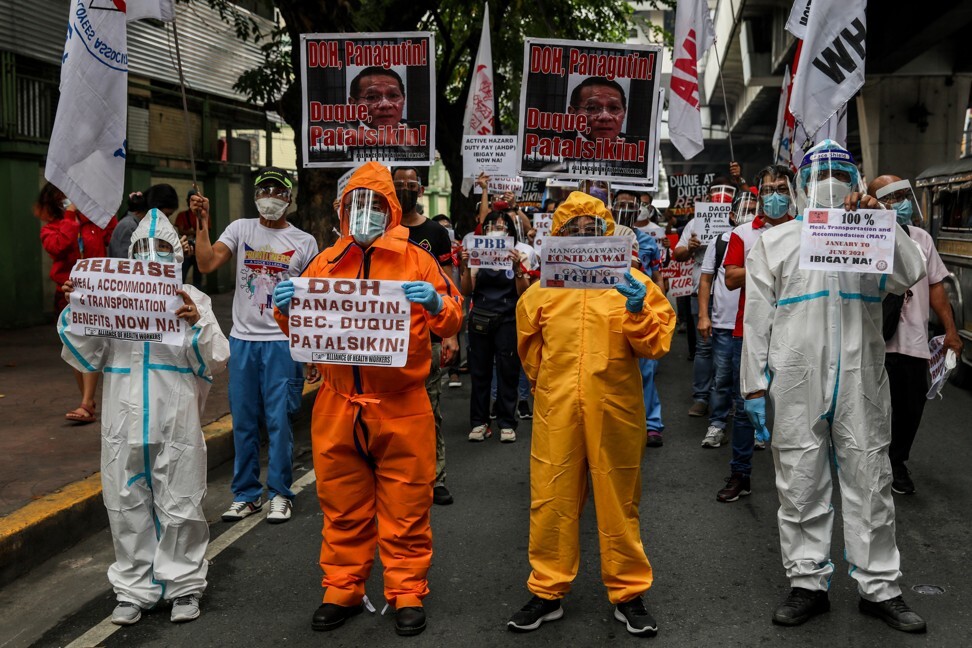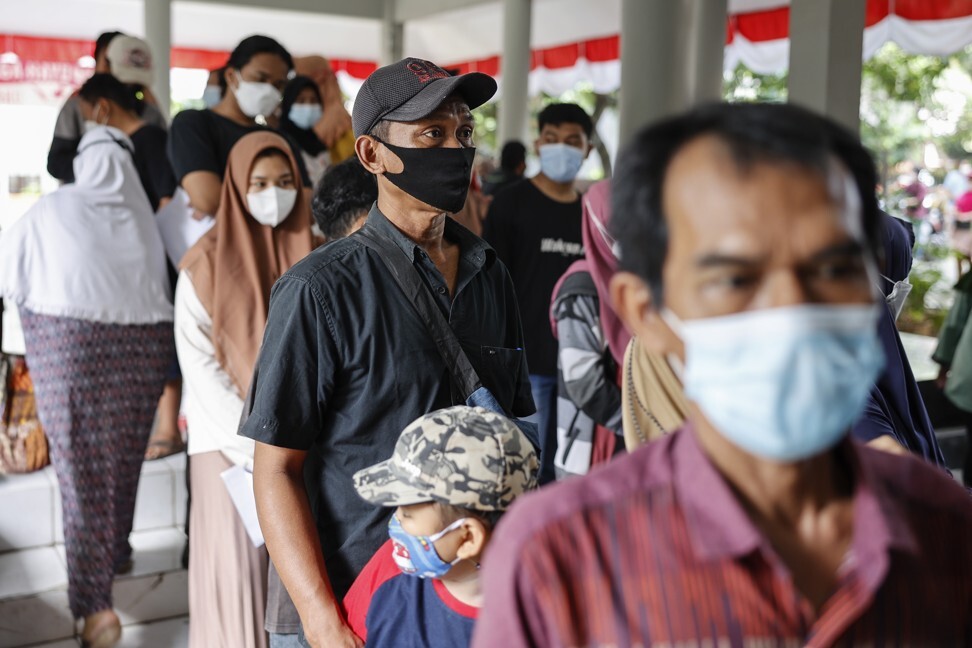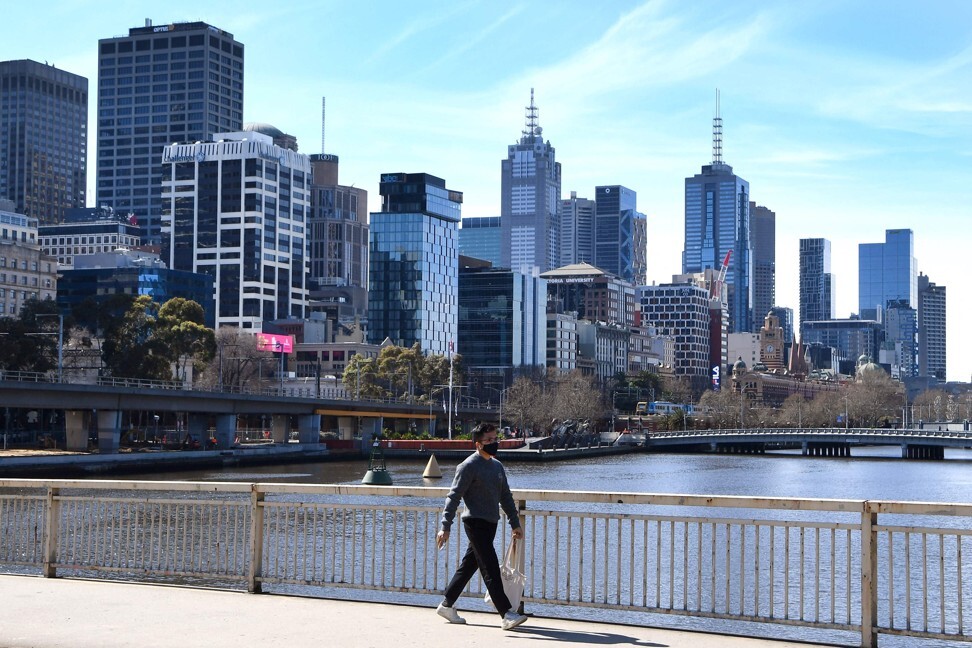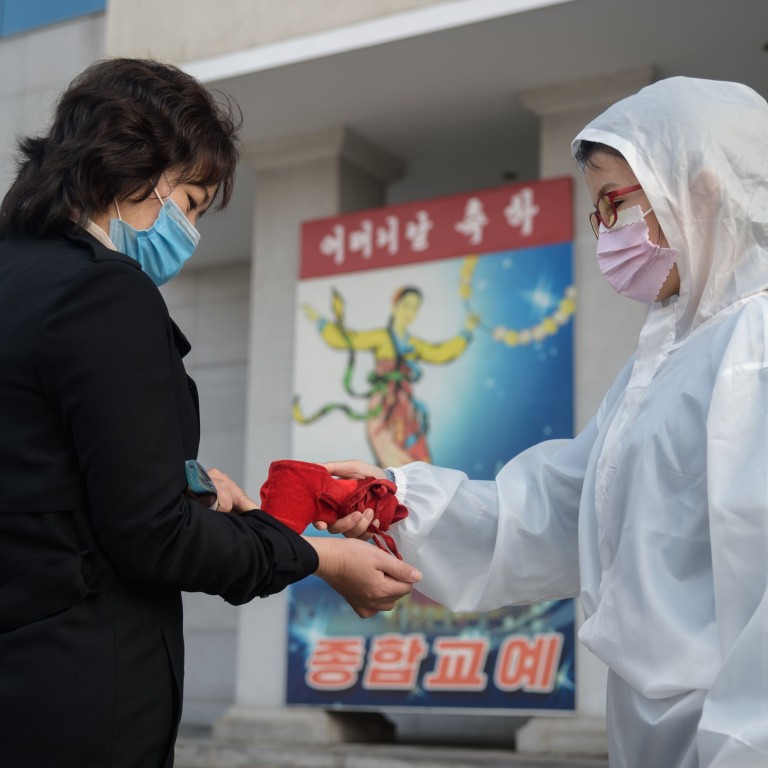
Coronavirus: North Korea rejects Chinese vaccines; Malaysia mulls booster jabs
- Pyongyang told Unicef it wants a shipment of some 3 million Sinovac shots to be sent to countries that are worse off
- Elsewhere, the Philippines has crossed 2 million infections, while Malaysia is exploring the need for vaccine boosters
The isolated country’s public ministry pointed to the limited global supply for vaccines and continuing virus surges elsewhere, according to the UN children’s agency that manages the supply for the Covax Facility global-sharing scheme for lower-income nations.
North Korea, which claims it has no Covid-19 cases, has imposed strict antivirus measures, including border closures and domestic travel curbs.
North Korea’s pandemic isolation fuels humanitarian disaster fears
A spokesperson for the UN agency told Reuters that the ministry would continue to communicate with Covax Facility to receive vaccines in the coming months.
In July, North Korea had rejected shipments of AstraZeneca’s vaccine due to concerns over side effects, according to a South Korean think tank, which is affiliated with South Korea’s spy agency.
The Institute for National Security Strategy had then said that North Korea was not keen on Chinese vaccines due to concerns they may not be that effective, but it has shown interest in shots made in Russia.
Several countries such as Thailand and Uruguay have begun using other vaccines for those who received the Sinovac shot as their first dose in a bid to increase protection.
“We continue to work with DPRK authorities to help respond to the Covid-19 pandemic,” a spokesperson for the Global Alliance for Vaccines and Immunization alliance, one of the organizations that co-leads Covax Facility scheme, said.
Philippines hits 2 million virus cases as Delta drives surge
The Philippines on Wednesday topped 2 million coronavirus cases amid a record surge in infections that the WHO confirmed was being driven by the Delta strain.
Official data showed the country recorded 14,216 new infections on Wednesday, taking the total caseload to just over 2 million, with 33,533 deaths in the country of 110 million people.
“It is possible the number of Covid-19 cases will rise some more in the coming days,” the health department said.
Daily cases exceeded 22,000 for the first time on Monday – more than double the number on August 6 when the sprawling national capital region went back into lockdown.
‘Circumcision season’ returns to the Philippines after pandemic delays
WHO representative in the Philippines Rabindra Abeyasinghe on Tuesday said the latest resurgence was being driven by the Delta variant.
“More than 70 per cent of the current transmission is attributable to the Delta variant,” Abeyasinghe told reporters, citing the results of genome sequencing.
The lockdown in the capital and nearby provinces has been extended until next week as authorities battle to slow the spread of the virus.
Abeyasinghe said the latest lockdown, accelerating vaccination rate and increased hospital bed capacity had so far prevented “a complete overwhelming” of the country’s health care system.
South Korean health workers plan strike
The Korean Health and Medical Worker’s Union has warned some of its 80,000 members, including nurses, medical engineers, pharmacists and administrative hospital staff, would begin striking from Thursday if demands are not met.
The union said it had not put a timeline on how long the strike might go on.
BTS to return to UN as South Korea’s special envoy for post-Covid world
The government and the union had met for talks 12 times since May, including a 14-hour marathon session on Monday, but had not been able to find common ground.
It was not immediately clear how crippling the strike could be. Government officials say only a certain percentage of workers are expected to join and essential services such as emergency rooms, surgeries and dialysis will still operate.
South Korea reported 2,025 new Covid-19 cases for Tuesday, not far off a record daily high marked earlier last month. Around 57 per cent of it 52 million population have been given one dose of a vaccine, while 30.7 per cent are fully vaccinated.
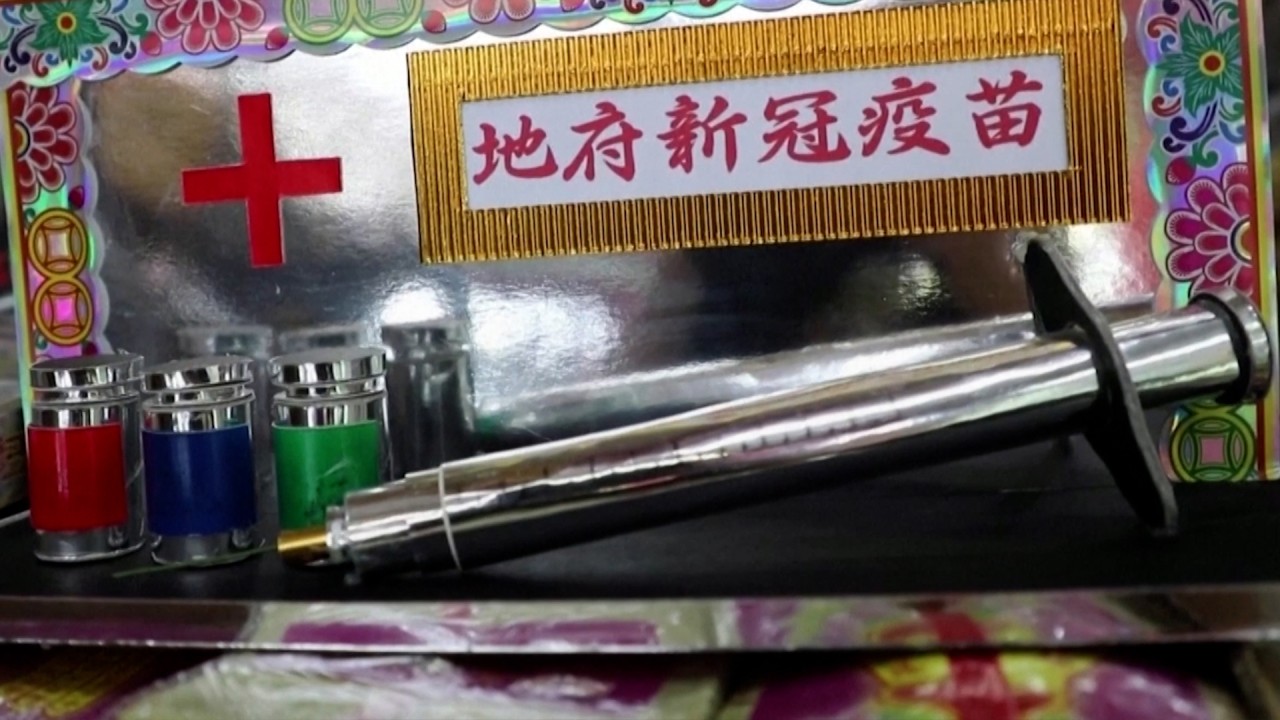
02:24
Sales of paper ‘vaccines’ for the dead rise in Malaysia amid spike in Covid-19 cases
Malaysia considers booster shots
An expert committee has been set up to assess the need for a third shot and is expected to give its recommendation by month-end, Health Minister Khairy Jamaluddin said at a briefing on Wednesday.
The priority now is to focus on people who haven’t received even their first shot, he said. Only 46 per cent of Malaysians have been fully inoculated as of August 31, with states including Sabah and Perak falling behind on coverage. More vaccines will be sent their way, he said.
Malaysia isn’t alone in weighing the need for booster shots. Singapore is eyeing a third round of vaccine for some segments of its population, while Indonesia has rolled out booster shots only for its health care workers.
New cases in Malaysia have soared despite the containment measures, hitting a record 24,599 in one day late last month and turning the country into Southeast Asia’s Covid-19 hotspot. The nation added 18,762 new infections on Wednesday, taking the total number to 1.76 million.

02:44
Afloat and alone: Indonesia’s Covid-19 isolation facility on the sea
Indonesia administers 100 million vaccine shots
More than 23 per cent of the country’s 270 million population, the fourth-biggest in the world, have received at least their first dose, while about 13 per cent are fully inoculated, health ministry data showed.
While it still aims to inoculate 70 per cent of people to reduce hospitalisations and deaths, the government has shifted away from its herd immunity goal, preparing instead to live with the virus.
Plans are in place to gradually resume factory and in-office work while imposing strict health protocols and speeding up vaccinations. Infections and deaths have eased from their peak in July, while positivity rates have also fallen to 12.9 per cent from over 30 per cent.
Japan uncovers more contaminated Moderna vials
In Japan, authorities reported a fresh contamination case involving Moderna’s Covid-19 vaccine, the fourth such incident in less than a week, threatening to slow the country’s sputtering inoculation campaign.
Kanagawa prefecture on Tuesday said several black particles in one Moderna vaccine vial were found upon checking for foreign substances before its use, and it has put the rest of the lot on hold.
Japan suspended the use of 1.63 million doses of Moderna shots last week after being notified of contamination in some of the supply. Moderna and Spanish pharmaceutical company Rovi, which bottles Moderna vaccines, have said the cause could be a manufacturing issue, and European safety regulators have launched an investigation.
Moderna has said no safety or efficacy issues had been identified from the issue.
Japan to name and shame hospitals that refuse Covid-19 patients
Kanagawa prefecture said the vaccine’s domestic distributor, Takeda Pharmaceutical Co Ltd, had collected the vial with the suspected contaminant and that about 3,790 people had already received shots from the same lot.
More Moderna shots were temporarily halted in two other regions this week. In some cases, foreign substances have been found in unused vials, whereas others appear to be caused when bits of the vials’ rubber stopper break off when needles are incorrectly inserted.
The contamination incidents come as Japan is battling its worst wave of infections, driven by the Delta variant, with daily infections exceeding 25,000 in August for the first time.
Australia extends Melbourne lockdown amid shift in focus
Australian authorities on Wednesday extended the Covid-19 lockdown in Melbourne for another three weeks, as they shift their focus to rapid vaccination drives and move away from a suppression strategy to bring cases down to zero.
Victorian Premier Daniel Andrews flagged a staggered easing of the tough restrictions once 70 per cent of the state’s adult residents receive at least one dose, a milestone he hopes to reach at least by September 23, based on current vaccination rates.
“We have thrown everything at this, but it is now clear to us that we are not going to drive these numbers down, they are instead going to increase,” Andrews told reporters in Melbourne, the state capital, after a lockdown for nearly a month failed to quell the outbreak. The lockdown was set to end on Thursday.
“We got to buy time to allow vaccinations to be undertaken all the while doing this very hard work, this very painful and difficult work, to keep a lid as much as we can on cases,” Andrews said.
Australia set to abandon Covid-19 elimination strategy as deaths top 1,000
New local cases jumped to 120 in Victoria from 76 a day earlier. Of the new cases, 100 have spent time in the community while infectious.
Neighbouring New South Wales state, home to Sydney, on Wednesday brought forward its target date to fully vaccinate 70 per cent of people above 16 to the middle of next month from the initial target of the end of October, as outbreaks spurred a surge in inoculation.
“No matter where you live, life will be much, much better, much freer, as long as you’re vaccinated at 70 per cent,” Berejiklian told reporters.
So far 37 per cent are fully vaccinated in the state, while 67 per cent have had at least one dose, slightly higher than the national numbers but well below most comparable nations.
Reporting by Reuters, AP, AFP, Bloomberg

